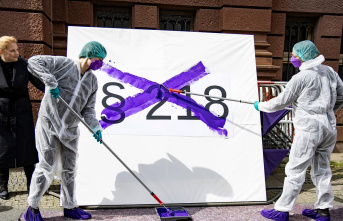SOLTVADKERT (Hungary) -- Zoltan Sztojka is, according to his own account, Hungary's last Roma fortuneteller. He places 36 weathered tarot card on a table in his Soltvadkert home and looks at them through the brim his large felt hat.
He presents his clients, whom he refers to as "patients", details about their past, present, and future. This skill of divination is something he claims he inherited from a "unbroken" family of fortunetellers that dates back to 1601.
He says that his ancestors were "footsellers and seers" and refers to generations of them who were "chosen for God" to use the gift of fortunetelling.
47-year-old Sztojka is known to friends and neighbors as "Zoli with a hat". He uses palm reading and cards to divinate information about clients. This trade he has been practicing for 25 year. He says that his abilities at seeing the unseen were evident from a young age.
He said, "You can either be born with it or inherit it." While he was sat in a room full of religious icons and burning candles, a cigarette hanging from his lips.
Sztojka is part of Hungary's large Roma population, estimated to number around 1 million in Central Europe. This represents roughly 10% of the country's total population. Many Roma are present in almost every country of Europe and face racism, segregation , social excluded, and poverty .
Roma emigrated to Hungary in 15th century. They were well-known for their abilities as musicians and craftspeople. They spoke long enough to be able to speak their own language, and they retained many dialects and customs that were related their trades -- metalworkers and horse grooms, traders, musicians, and fortunetellers among others.
In the middle of 18th century, Habsburg empress Maria Theresa ordain the forced assimilation and exclusion of Roma.
Roma children were taken from their homes and placed in non-Roma households. The use of the Hungarian term for Roma, cigany, was forbidden. They were called "New Hungarians".
This, along with other forms of marginalization, means that many Roma in Hungary cannot speak the Romani language and many of their traditional trades, such as fortunetelling, have been lost.
Szenasi stated that "traditional occupations" are on the decline. "It is vital to preserve them for future generations, as it is through them that Roma can have their own identity."
Sztojka believes that preserving Roma culture is more than just keeping alive the centuries-old art and craft of fortunetelling. He wears brightly colored vests and shirts with floral folk patterns and has a long, dark moustache.
He is a devout Catholic and only takes off his wide-brimmed cap -- a signature of the Gabor Roma clan in Transylvania -- when he eats or attends church.
He said, "It is very important to preserve our culture, traditions, and because if there is no culture, then the Gypsy population will cease to exist." I try to pass them along to as many people as possible so that they can get to know us. They only know there are Gypsies but not much about us.
Although the term Gypsy is offensive in many cultures, Sztojka prefers to use it for Roma.
His family is part of the Lovari subgroup, which includes Roma people. They speak the Lovari dialect in Romani. He says it's "on the brink of extinction."
"People don’t want to learn the Gypsy language." He said that everyone assimilates like they suddenly wanted to be Hungarian."
Along with his clairvoyance, Sztojka inherited his 150-year-old tarot cards from his great-great-grandmother, who herself was a fortuneteller in a time when the tradition was a much greater part of Roma identity.
Beatrix Kolompar was one of Sztojka’s relatives. She said that her family's traditions could "distinguish us as Gypsies or as Roma."
She said, "Since there is no country we can call our own, we continue the world we live and the Roma way to life through our traditions." It's proof that we are who we really are, with the dancing girls and their colorful costumes, as well as the fortunetelling, fortunetellers, and fortune-telling.
Szenasi, however, is the director of Uccu Foundation. He says that to preserve such traditions, one must have cultural recognition. This is a very difficult thing in Hungary.
She stated that without "institutional culture", such as museums or other cultural institutions, the traditions of Gypsy people are gradually being lost and will be replaced by "cultural institutions."
Sztojka claims that he lost approximately half his business in the COVID-19 pandemic. However, many of his "patients", he says, are returning visitors who believe in his clairvoyance.
Sztojka earns his living by fortunetelling. He charges 15,000 Hungarian Forints ($50) for each session. However, he insists that he does not turn away poor people. He also views it as a "mission" that spiritually enriches him and his clients.
"To be able to read cards is a blessing in disguise." He said, "It's how I can assist my fellow humans."
Despite the loss of centuries-old cultural ways of life, Zoli with the Hat says that he will not give up on the mystical trade his ancestors left him.
"My grandparents and my parents did not assimilate. I will not either." Sztojka stated that if you don't have a past, you have no future.
"I believe I was born Gypsy and that I will live as a Gypsy."












